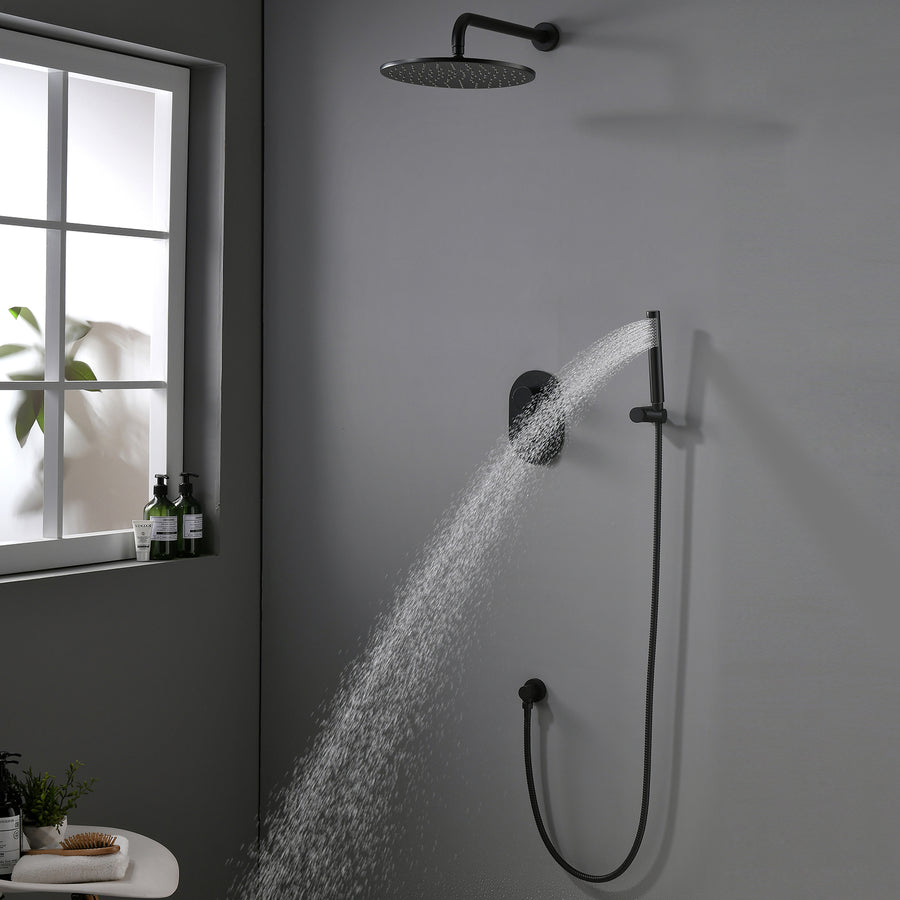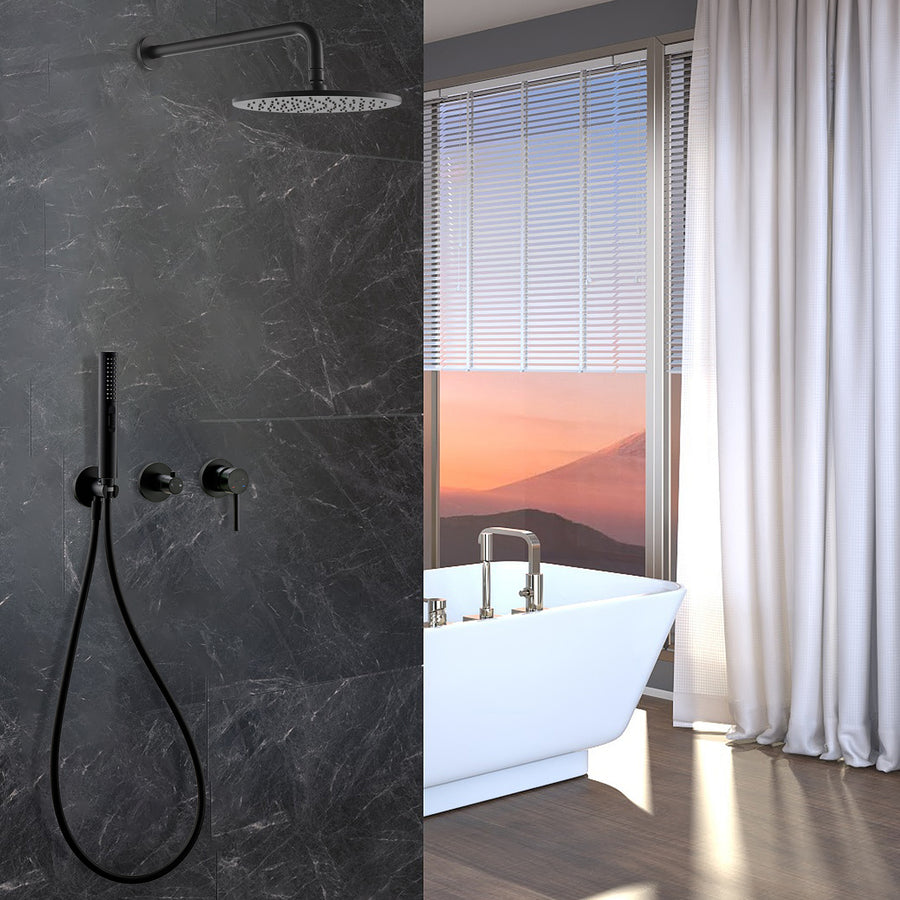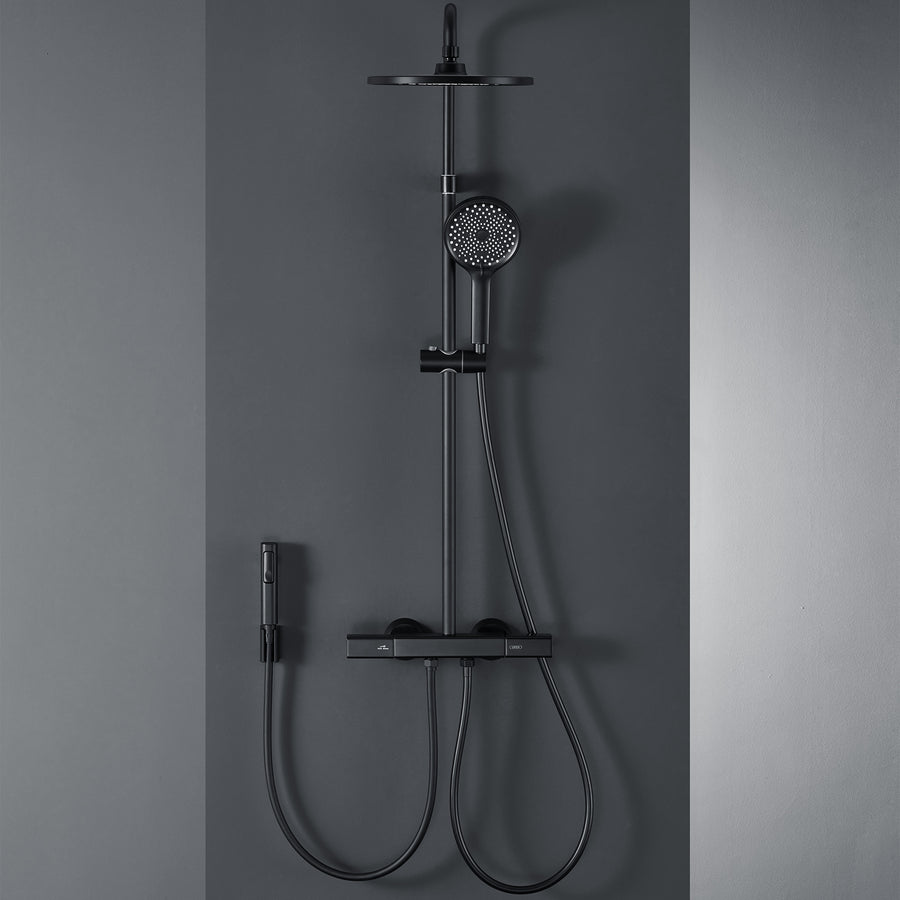Introduction
Choosing the right shower system is a critical decision in any bathroom renovation or new home construction. It's not just about aesthetics; the functionality, compatibility with your home's plumbing, and water efficiency play significant roles in enhancing your daily shower experience. This comprehensive guide delves into the various shower systems available, helping you make an informed choice that suits your lifestyle and preferences.
Understanding Shower Systems
A shower system encompasses the entire setup for your showering experience. This includes the showerhead, controls, faucets, and any additional features like body jets or handheld sprayers. The choice of a shower system is influenced by several factors, including water pressure, plumbing configuration, personal preferences for shower experience, and aesthetic considerations.
Types of Shower Systems
1. Electric Showers
- Description: Electric showers are a popular choice in many homes. They heat water instantaneously as it passes through the unit, providing hot water on demand.
- Pros: Energy-efficient as they heat only the water you use; relatively easy to install.
- Cons: The flow rate can be lower, especially in colder climates; dependent on your home’s electrical system.
2. Power Showers
- Description: Designed for homes with low water pressure, power showers use a built-in pump to boost water flow, offering a more invigorating shower experience.
- Pros: Improved water pressure; often includes adjustable settings for personalized comfort.
- Cons: Higher energy consumption; not compatible with all home plumbing systems.
3. Manual Mixer Showers
- Description: These showers mix hot and cold water supplies manually, giving you control over the temperature and flow.
- Pros: Simple and straightforward to use; compatible with most plumbing systems.
- Cons: Temperature and pressure can fluctuate with changes in water supply.
4. Thermostatic Mixer Showers
- Description: These showers maintain a consistent water temperature, automatically adjusting to changes in water pressure.
- Pros: Safe for all ages, reducing the risk of scalding; offers a stable and comfortable shower experience.
- Cons: Generally more expensive than manual mixers; installation may require plumbing adjustments.
5. Digital Showers
- Description: The epitome of modern shower technology, digital showers offer precise digital control over temperature and flow.
- Pros: High degree of customization; some models offer remote control or integration with smart home systems.
- Cons: Higher initial cost; installation might require professional assistance and electrical modifications.
Factors to Consider When Choosing a Shower System
The choice of a shower system is not just about personal preference. Consider the water pressure of your home, as some systems like power showers require specific pressure levels. Also, evaluate whether your existing plumbing setup can accommodate the shower system you prefer without extensive modifications. Safety features like thermostatic controls are essential for households with children or the elderly.
Design and Aesthetic Considerations
Shower systems come in a variety of styles and finishes, allowing you to choose one that complements your bathroom's aesthetics. Modern designs with sleek lines and minimalistic features are popular, as are traditional styles with more ornate details. Finish options range from classic chrome to matte black, brushed nickel, and even gold tones, enabling you to align the shower system with your overall bathroom design theme.
Environmental Impact and Sustainability
In an era where environmental consciousness is paramount, selecting a shower system that conserves water without compromising on performance is crucial. Look for systems with eco-friendly features like low-flow shower heads or aerators that reduce water usage. Some systems also have heat recovery capabilities, further enhancing energy efficiency.
Installation and Maintenance
The complexity of installing a shower system varies. While some can be easily installed without major plumbing changes, others might require professional installation, especially if they involve extensive alterations to existing plumbing or electrical systems. Maintenance is another aspect to consider; some systems may require regular descaling, particularly in areas with hard water.
Cost Implications
The cost of shower systems can vary significantly based on the type, features, and brand. While budget is an important consideration, it's also wise to think about long-term costs associated with maintenance, water usage, and energy efficiency. Investing in a higher-quality system might offer better long-term value.
Conclusion
Selecting the right shower system is a balance between functional requirements, aesthetic preferences, budget considerations, and environmental impact. Whether you prioritize a luxurious showering experience or a more environmentally friendly option, there's a shower system out there to meet your needs. Consider your home's water pressure, plumbing setup, and your personal preferences in making your decision.











